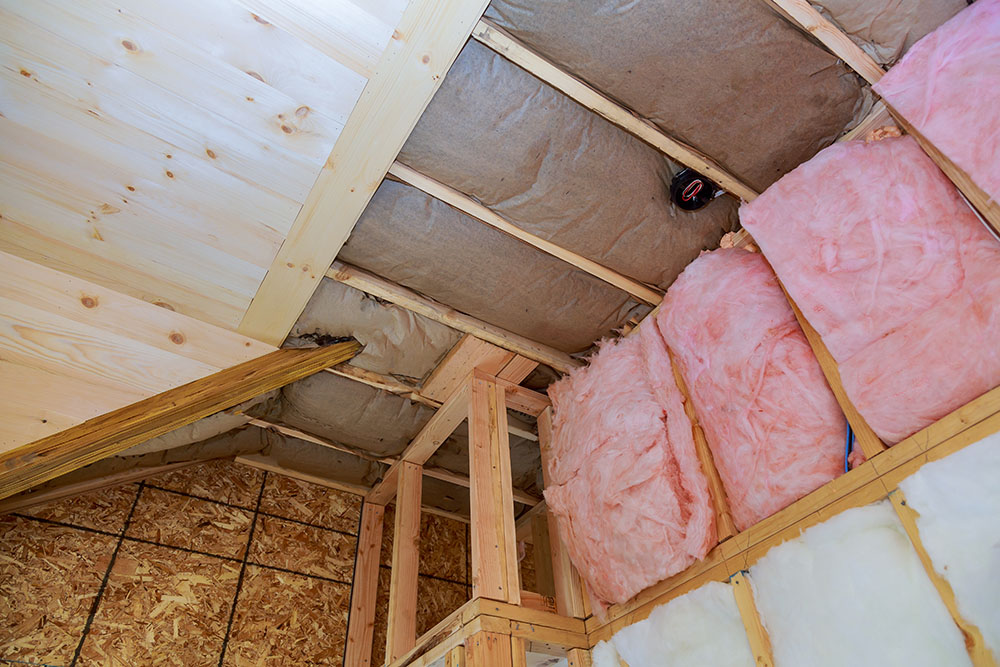Does Thermal Insulation Reduce Noise?

CONTENTS
- What is the difference between acoustic and thermal insulation?
- What thermal insulation has acoustic properties?
- How does thermal insulation reduce noise?
- How effective is soundproof insulation?
- How does acoustic thermal insulation improve comfort?
- Frequently asked questions
- Get in touch
Many think thermal insulation is just about keeping warmth in or out. But, it can also play a key role in reducing noise. Every insulation material will have individual noise-reducing properties, some better than others, but having a high R-value is just as important.
At ICE Thermal, we offer acoustic insulation installation services on domestic and commercial properties nationwide. We work with you to choose the best material and application, ensuring a more comfortable environment with less noise.
Read on to learn about various insulation options, such as mineral wool and fibreglass, illuminating their dual perks in moderating temperature and reducing noise.
What is the difference between acoustic and thermal insulation?
Understanding the unique purposes of sound and heat barriers is crucial in enhancing comfort within any structure. While both types aim to improve living conditions, they function quite differently.
Acoustic insulation targets noise reduction. It absorbs sound waves, minimising echo and preventing sound from entering or leaving a space. Hence, it is well-suited for places where reduced noise is integral to the homeowner or business.
On the other hand, thermal insulation focuses on temperature management by battling against the movement of heat. It significantly boosts energy efficiency and reduces energy bills by aiming to maintain comfort during winter and remaining cool during summer's heat.
What thermal insulation has acoustic properties?
Mineral wool insulation
Mineral wool is dense and fibrous, effectively traps air and dampens sound waves. This substance manages heat and reduces noise coming from the outside and indoors.
Fibreglass insulation
Fibreglass is another dual-purpose insulator, constructed from materials that soak up sound. It serves as a perfect solution for managing room temperature and reducing noise.
Blown cellulose insulation
Made from recycled paper products, blown cellulose fills tight spaces. This quality makes it good at reducing unwanted noise by preventing sound transmission through walls or ceilings.
Polyurethane insulation foam
The foam swells to fill openings, ensuring a barrier that wards off cold air and noise. Its cellular structure absorbs sound vibrations well, offering enhanced noise reduction alongside energy efficiency.
How does thermal insulation reduce noise?
Noise pollution can significantly impact our well-being and comfort at home. Fortunately, certain types of thermal insulation possess properties that make them excellent at dampening sound vibrations.
The principle behind this lies in their structure: most insulating materials have porous or fibrous properties, which disrupt sound waves' path and absorb vibrational energy.
This absorption process converts part of the sound energy into heat, effectively reducing the noise that penetrates through walls or ceilings.
How effective is soundproof insulation?
The effectiveness of soundproof insulation depends on its R-value, which measures how well a material stops heat from moving through it. This gauge does not solely ensure warmth within your property; it is pivotal in diminishing noise. Higher R-values indicate better performance in both areas.
Sound travels through materials differently, which means all insulations are unequal when it comes to soundproofing. Materials with higher mass and density generally offer better noise control because they are harder for sound waves to penetrate.
Combining thermal insulation with specific acoustic properties becomes essential to achieve the best results. Products like mineral wool and fibreglass stand out due to their dual capabilities.
These materials can capture air to minimise heat transfer and absorb sound waves, offering a dual advantage for indoor comfort and energy efficiency improvement.
How does acoustic thermal insulation improve comfort?
Noise pollution is a known disruptor within any living or working environment. Acoustic thermal insulation, by its design, addresses this issue directly. This innovation improves indoor comfort and reduces sound interference, improving overall calm and well-being.
A feature that makes acoustic thermal insulation integral for comfort is its ability to absorb sound vibrations. This absorption process minimises the echo and reverberation of sounds inside rooms, making conversations clearer and reducing strain on our ears caused by background noise.
Additionally, substances like mineral wool or fibreglass can act as thermal insulation and acoustic insulation. The mental impact of acoustic and thermal insulation shows that quieter environments promote better concentration levels for tasks at hand and facilitate more restful sleep patterns.
Frequently asked questions
Can you use thermal insulation for soundproofing?
Yes, but it's more about reducing noise than full-blown soundproofing. Works best in combination with other methods.
Does insulation reduce noise?
Absolutely. It helps muffle sounds, making indoor spaces quieter and more peaceful.
What kind of insulation is best for soundproofing?
Dense materials like mineral wool or fibreglass are top picks for muffling unwanted noise effectively.
Does insulation make a difference in sound?
Yes, when properly installed, it can significantly lower background noises from outside or between rooms inside.
Get in touch
For acoustic thermal insulation that doubles up as thermal insulation, get in touch with ICE Thermal. Our team can assess your property, settle on the right material for you and install it where you require it most.
To learn more about our various thermal insulation services, contact our team today at 0203 376 4802 or [email protected]. We can be on-site the same day as your initial call, dispatching teams nationwide all year round.

Speak with me today,
I’m here to help
By asking you a few questions either via phone or email I can immediately provide a realistic estimation of the cost.

Why choose us?
- Cater to a wide variety of cleaning situations
- Nationwide coverage, available 24/7
- Cater to commercial and domestic clients
- Free survey provided prior to quotation
- Emergency response team
- Offer a bespoke service designed to suit all your needs
- All technicians hold professional health and safety qualifications, including BICSc, IOSH, Dewpoint Professional & Safe Contractor
We’re fully accredited
We place best practise, professional expertise and health and safety at the core of our business. We’re fully compliant with all legal obligations. You can view a list of our accreditations below, or visit our Health & Safety page for more information.











-RGB-small.1707319151.jpg)




















